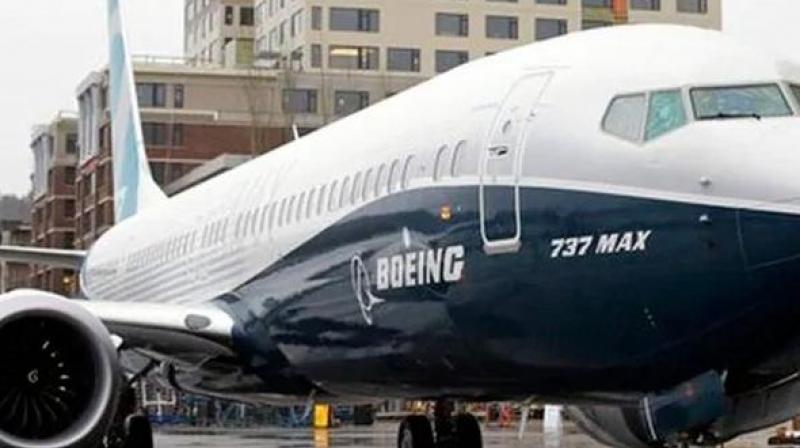Boeing is temporarily slashing off production of its best-selling 737 airliners, after witnessing continuous throw down in Ethiopia and Indonesia.
The company will drop its production from 52 planes a month to 42 from mid-April.

The resolution is a reaction to stop deliveries of the 737 Max – the model is tangled in the two accidents.
The plane at present is prohibited as preceding findings recommend its anti-stall system was at guilty.
Shortly after taking off from Addis Ababa in March, Ethiopian Airlines 737 Max crashed killing all 157 people on board.
Indonesian airline Lion Air crashed into the sea only five months earlier, quite soon after taking off from Jakarta. That accident stated the lives of 189 people.
In either case, preceding detection appeared the pilots had wrangled with the anti-stall system called MCAS, which caused the planes to nose-dive repeatedly.
The pilots of flight ET302 continuously followed procedures recommended by Boeing before the crash, says a report issued on Thursday from the Ethiopian authorities.
Boeing Statement
Chief Executive Officer Dennis Muilenburg
We get to know that the recent Lion Air Flight 610 and Ethiopian Airlines Flight 302 accidents were affected by an attached incident, with a common chain link being inaccurate stimulation of the aircraft’s MCAS function. We have the authority to eradicate this risk, and we know how to do it.
He reiterated saying Boeing was making headway on updating the MCAS software and finalizing new training for Max pilots.
Dennis Muilenburg says that “We’re adjusting the 737 production system fleetingly to hold the pause in Max deliveries, allowing us to prioritize added supply to emphasize software certification and returning the Max to flight”.
At present, employment levels would be maintained, and a new jury is being structured to glance at “strategies and procedures for the depiction and growth of the airplanes we build” he said in the statement.
Hurdles faced by Boeing
The 10 March crash of Ethiopian Airlines ET302 led to airlines globally prohibiting their 737 Max aircraft.
Inquiries are being done on why the planes were not prohibited earlier. Leading to a surplus of planes needing storage, conveyance of the Max was stopped. Boeing shares hewed just over 1% in before dawn trading to $387.14 (£333) later.
Victims reaction:
Boeing pardoned on Thursday saying it was sorrowful for the lives lost in both accidents. But this has got down to please multiple comparatives which were interrogated about why Boeing didn’t initiate earlier to take the planes unserviceable.
The apology was “too little, too late”. said The chief pilot’s father, Dr. Getachew Tessema.
He told the BBC’s Emmanuel Lgunza that “I am pleased with my son and the other pilot.”
They struggled as much as they could but sadly they couldn’t stop it.
He died in the course of his duty, I won’t feel apologetic that he was a pilot, He says.
Dr. Tessema measures the guilt objectively at Boeing, asking why didn’t the company stop the 737 Max flying after the Indonesia crash.
“Why they allowed them to fly?” Since they were in the rivalry, they wanted more to be sold.
24-year-old Samya Stumo, the relative of an American passenger filed the first lawsuit against Boeing on Thursday in Chicago.




Leave a Reply